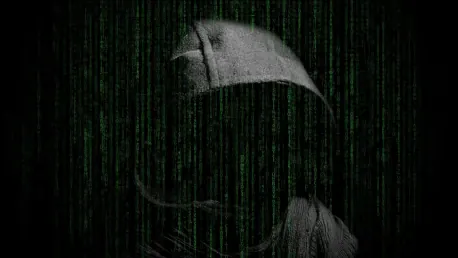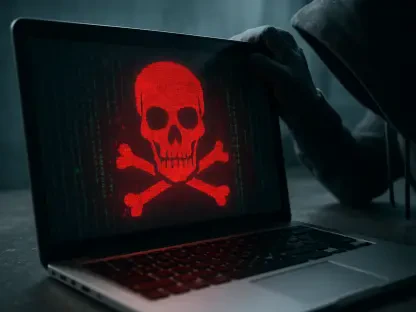In a startling revelation that has shocked the global community, Amnesty International has uncovered substantial evidence that the Serbian government under President Aleksandar Vucic is using sophisticated surveillance and intimidation tactics to silence activists and journalists who dare to criticize the regime. The investigation highlights how Serbian authorities have employed both domestic and Israeli-made software to facilitate unauthorized surveillance, aggravating already high tensions amidst ongoing protests against the government. These demonstrations have been particularly intense following a deadly train station collapse in Novi Sad, Serbia’s second-largest city, propelling concerns about the state of governance and accountability in the nation.
Surveillance T tactics Unveiled
The covert surveillance operations came to light in early November during a protest demanding political accountability for the tragic collapse in Novi Sad. Nikola Ristic, a young activist at the forefront of the movement, was detained by police and interrogated by Serbia’s national security and intelligence agency, the BIA. According to Amnesty International’s detailed report, Ristic’s mobile phone was left unattended in a separate room during the interrogation, allowing authorities to install spyware known as NoviSpy. Alongside Cellebrite’s software, this spyware grants the BIA extensive access to personal data including contacts, messages, and the capability to activate the phone’s microphone and camera remotely. Ristic described the interrogation process as an attempt by the authorities to deter him from continuing his activist activities.
Forensic analysis conducted on phones belonging to multiple activists and journalists verified the use of these invasive technologies. The Amnesty report corroborated long-standing suspicions that Serbian authorities have systematically utilized both domestic and Israeli spyware to monitor critics of the regime. The findings illustrate that Serbian police and the BIA utilize Cellebrite’s software to unlock devices and subsequently install NoviSpy, enabling them to conduct pervasive surveillance. This unauthorized monitoring allows Serbian authorities to closely follow and potentially inhibit the activities of those opposing the regime, representing a significant breach of privacy and civil liberties.
Vucic’s Grip on Power
Aleksandar Vucic’s ascendancy in Serbian politics has been marked by a steadily tightening grip on power since he became deputy prime minister in 2012, eventually ascending to the roles of prime minister and president. Despite the Serbian presidency being constitutionally limited in power, Vucic exerts considerable influence over the government, judiciary, national security, and media primarily through his neoliberal party, the Serbian Progressive Party (SNS). His administration is widely perceived to be deeply entrenched in corruption and authoritarian practices. During public statements, Vucic has frequently derided protesters and opposition groups, branding them as adversaries of the state.
The alarming revelations about surveillance have surfaced at a time of significant unrest, particularly following the fatal collapse of the Novi Sad rail station canopy on November 1. The station, which had been recently renovated and was seen as a symbol of infrastructural progress, became a site of tragedy, sparking public outrage. This tragedy spurred a wave of protests, with university students leading demonstrations that disrupted academic activities across the nation, including significant participation from educational institutions like the University of Belgrade.
Impact on Journalists and Activists
Journalist Nedim Sejdinovic highlights the extensive and financially backed efforts by the state to silence dissenting voices. He warns that the spyware revelations increase the risks faced by journalists and their information sources, compromising their safety and ability to report freely. While Serbia’s government has categorically denied the findings laid out by Amnesty International, the BIA dismissed the report as sensationalist and without merit. Deputy Prime Minister Aleksandar Vulin, who is known for his pro-Serbian-Russian stance, went as far as to label the report part of a “hybrid war” against Serbia. Vulin’s party proposed a law targeting “foreign agents,” similar to the stringent regulations imposed on NGOs in Russia.
Additionally, Cellebrite, the company behind the spyware, confirmed its collaboration with Serbian authorities, underlining that any misuse of its tools would violate their end-user license agreement. Cellebrite suggested that if the allegations are substantiated, they might suspend Serbia’s access to its software, signaling a potential halt to these invasive surveillance practices. Such software misuse would not only breach legal agreements but also raise grave ethical concerns about privacy and human rights.
Broader Implications for Serbia
Serbia’s nearly decade-long journey toward European Union accession faces numerous obstacles related to its ties with Moscow and Vucic’s autocratic governance. Zoran Gavrilovic, from the Bureau for Social Research, observes that the Serbian government’s structure heavily revolves around the SNS and a personality cult centered on Vucic. According to Gavrilovic, the surveillance tactics aim to suppress journalistic and civil society activities, deterring critics from exposing corruption and demanding democratic reforms. This suppression undermines Serbia’s democratic processes and calls into question its commitment to EU standards.
The ongoing student protests represent a significant challenge to Vucic’s authority, reflecting growing dissatisfaction among the younger population. These protests not only involve university students but also high school students, indicating a broad-based discontent with the current administration. Despite token gestures such as the resignation of two Cabinet ministers and arrests made in connection to the Novi Sad incident, protesters maintain that these actions are insufficient. They continue to hold Vucic accountable for the broader issues affecting Serbian society, including systemic corruption and lack of transparency.
Government’s Response and International Scrutiny
In a shocking revelation that has stunned the international community, Amnesty International has found significant evidence indicating that the Serbian government, led by President Aleksandar Vucic, is employing advanced surveillance and intimidation techniques to silence critics, particularly activists and journalists. The findings detail how Serbian authorities are resorting to both domestic and Israeli-made software for unauthorized surveillance purposes, thereby heightening already elevated tensions during ongoing protests against the regime. These demonstrations have surged in intensity, particularly after a catastrophic train station collapse in Novi Sad, Serbia’s second-largest city, raising urgent questions about governance and accountability within the country. The growing discontent among the population underscores the precariousness of the political climate and the urgent need for transparency and reform in Serbia to address the public’s mounting concerns.









